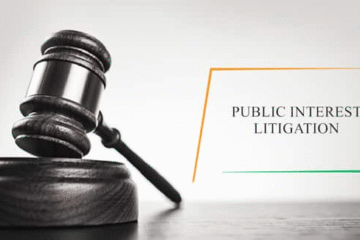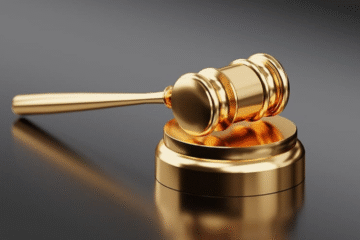
This article is written by Gayatri Pundhir of Symbiosis Law School, Noida, an intern under Legal Vidhiya
Abstract
It explores the foundational principles and legal frameworks governing parliamentary sovereignty and privileges within the Indian context. The abstract highlights the constitutional provisions establishing parliamentary sovereignty and the nature and types of parliamentary privileges granted to members of Parliament and state legislatures. It also discusses the contemporary relevance of these concepts in India’s democratic governance, emphasizing the delicate balance between parliamentary authority and the protection of fundamental rights. Furthermore, the abstract calls for ongoing legal scholarship and policy considerations to address emerging challenges and promote transparency, accountability, and public participation in parliamentary processes. Overall, the abstract serves as a concise introduction to the complex and dynamic nature of parliamentary sovereignty and privileges in India’s democratic framework.
Keywords
Parliamentary Sovereignty, Constitutional Provisions, Case Laws.
Introduction
“Parliamentary sovereignty, also called parliamentary supremacy or legislative supremacy, is a concept in the constitutional law of some parliamentary democracies. It holds that the legislative body has absolute sovereignty and is supreme over all other government institutions, including executive or judicial bodies. It also holds that the legislative body may change or repeal any previous legislation and so it is not bound by written law (in some cases, not even a constitution) or by precedent.”[1]
Parliamentary privileges, a set of special rights and immunities granted to members of Parliament and the institution itself, play a pivotal role in upholding the integrity of legislative functions. These privileges encompass freedoms such as freedom of speech, freedom from arrest, and immunity from legal actions for statements made during parliamentary proceedings.
Understanding the nuances of parliamentary sovereignty and privileges is crucial for maintaining the delicate balance between the three pillars of democracy. Investigating these aspects in the Indian context allows for a comprehensive analysis of their historical evolution, constitutional grounding, and contemporary relevance. Moreover, it sheds light on the challenges and debates surrounding parliamentary authority, influencing legal scholarship, policymaking, and the overall democratic ethos in the country.
As we delve into the intricate dynamics of parliamentary sovereignty and privileges, it becomes evident that a nuanced exploration is essential to grasp their multifaceted impact on the functioning of the legislative branch and, consequently, the democratic governance of the nation.
Historical Evolution
Tracing the Origins of Parliamentary Sovereignty in India
The roots of parliamentary sovereignty in India can be traced back to the pre-independence era when the Constituent Assembly deliberated on the principles that would govern the newly formed nation. Influenced by the Westminster model, the framers of the Indian Constitution vested supreme legislative authority in the Parliament. The debates and discussions during this period laid the groundwork for defining the scope and limitations of parliamentary sovereignty.
Development of Parliamentary Privileges in the Indian Legislative Framework
The development of parliamentary privileges in India finds its origins in the British parliamentary traditions. As the Constituent Assembly adopted and adapted these principles, it recognized the need to grant certain immunities and rights to members of Parliament to ensure the effective functioning of the legislative process. Over the years, these privileges have been further delineated through statutory provisions and judicial interpretations, forming an integral part of the Indian legislative framework.
Key Historical Milestones Shaping Parliamentary Sovereignty
Several historical milestones have significantly influenced the evolution of parliamentary sovereignty in India. The adoption of the Constitution in 1950 marked a transformative moment, embedding principles of parliamentary supremacy within the legal and constitutional framework. Subsequent amendments, such as those related to the representation of states and the delineation of powers between the central and state legislatures, further shaped the contours of parliamentary sovereignty.
Additionally, landmark legal cases and parliamentary debates have played a pivotal role in defining the relationship between the judiciary and Parliament, adding layers of nuance to the understanding of parliamentary sovereignty. The historical evolution of these principles reflects the dynamic nature of India’s democratic journey, illustrating how constitutional ideals have adapted to the changing socio-political landscape while upholding the essence of parliamentary sovereignty.
Constitutional Provisions Establishing Parliamentary Sovereignty in India
In India, parliamentary sovereignty is enshrined within the constitutional framework through various provisions that delineate the powers, functions, and limitations of the Parliament. The primary document outlining this sovereignty is the Constitution of India, which establishes Parliament as the supreme legislative body in the country.
- “Article 13- Laws inconsistent with or in derogation of Fundamental Rights”[2]
Article 13 of the Indian Constitution limits parliamentary sovereignty by declaring void any law enacted by Parliament or state legislatures that contravenes fundamental rights guaranteed by the Constitution. This provision establishes the supremacy of fundamental rights over legislative enactments, acting as a check on parliamentary authority. It ensures that Parliament operates within the boundaries set by the Constitution, thereby balancing parliamentary sovereignty with the protection of individual rights and liberties. Thus, Article 13 serves to uphold the integrity of the constitutional framework by preventing Parliament from infringing upon fundamental rights in its legislative capacity.
- “Article 14- Right to Equality”[3]
Article 14 of the Indian Constitution, which guarantees equality before the law and equal protection of laws, is intertwined with parliamentary sovereignty. It mandates that the state shall not deny to any person equality before the law or equal protection of laws within its territory. This provision constrains parliamentary sovereignty by requiring that all laws enacted by Parliament must adhere to the principle of equality. Thus, Article 14 serves as a fundamental limitation on parliamentary authority, ensuring that legislative actions do not discriminate or arbitrarily treat individuals unequally, thereby upholding the principles of fairness and justice within the constitutional framework.
- “Article 368- Power of Parliament to amend the Constitution”[4]
Article 368 of the Indian Constitution relates to parliamentary sovereignty by providing the procedure for amending the Constitution. It vests the ultimate authority to amend the Constitution with Parliament, subject to certain procedural safeguards. This article enables Parliament to exercise its sovereign power to modify the fundamental law of the land, thereby demonstrating parliamentary supremacy in the process of constitutional amendment. However, this power is not absolute, as certain provisions, like basic structure doctrine, limit Parliament’s authority, ensuring that amendments do not alter the essence of the Constitution. Thus, Article 368 underscores Parliament’s role in shaping the constitutional framework while respecting its limitations.
- “Article 124(1)- Establishment and Constitution of Supreme Court”[5]
Article 124(1) of the Indian Constitution pertains to the establishment of the Supreme Court, linking it to parliamentary sovereignty. This provision grants Parliament the authority to establish and regulate the Supreme Court’s composition and jurisdiction through legislation. It illustrates parliamentary sovereignty by empowering the legislative body to define the highest judicial authority’s structure and functions. However, this provision also underscores the judiciary’s independence by insulating judicial appointments from direct parliamentary control, ensuring a balance of power between the branches of government. Thus, Article 124(1) demonstrates parliamentary sovereignty within the context of establishing and regulating the Supreme Court while respecting judicial autonomy.
Scope and Extent of Parliamentary Sovereignty in India
In India, the scope of parliamentary sovereignty is subject to the scrutiny of the judiciary, particularly concerning the interpretation and enforcement of constitutional provisions. While Parliament enjoys significant legislative authority, the judiciary acts as a check by ensuring that parliamentary actions adhere to the constitutional framework and do not violate fundamental rights or the basic structure of the Constitution. Through mechanisms like judicial review, the judiciary evaluates the constitutionality of laws passed by Parliament, thus delineating the boundaries of parliamentary sovereignty.
Parliamentary sovereignty in India is also influenced by international treaties and conventions. While Parliament possesses the authority to enact laws, international treaties ratified by India may impose obligations that restrict its legislative discretion. Therefore, Parliament’s sovereignty is tempered by the country’s commitments under international law, requiring harmonization between domestic legislation and international obligations.
Constitutional amendments have a significant impact on the scope and extent of parliamentary sovereignty in India. While Parliament holds the authority to amend the Constitution under Article 368, certain limitations, such as the basic structure doctrine, constrain its power. The judiciary has affirmed that Parliament cannot amend the Constitution in a manner that alters its basic structure, which includes principles like federalism, secularism, and the separation of powers. Thus, while Parliament retains significant legislative authority, its sovereignty is circumscribed by constitutional amendments that preserve the foundational principles of the Indian Constitution.
Nature of Parliamentary Privileges in India
In the Indian context, parliamentary privileges, defined under Article 105 of the Indian Constitution, are a set of special rights and immunities granted to members of Parliament and state legislatures to enable them to carry out their legislative functions effectively. These privileges are essential for maintaining the independence and integrity of the legislative bodies and are enshrined in the Constitution of India and various laws and rules.
The nature of parliamentary privileges in India is twofold: they are both substantive and procedural. Substantive privileges grant MPs and MLAs certain immunities and protections, such as freedom of speech within the Parliament or legislature, immunity from civil or criminal proceedings for statements made during debates, and exemption from serving on a jury while Parliament is in session. Procedural privileges encompass the right to regulate their internal proceedings, including the power to punish members or outsiders for breaches of privilege or contempt.
There are several types of parliamentary privileges recognized in the Indian context. These include:
- Freedom of Speech and Immunity from Legal Actions:
Parliamentary privileges in India include the freedom of speech and immunity from legal actions for statements made within the Parliament or state legislatures. This privilege allows members to express their views and opinions without fear of being prosecuted for defamation or other legal consequences. It ensures open and uninhibited debate within the legislative chambers, vital for the functioning of a vibrant democracy. However, this privilege is not absolute and must be exercised responsibly, with members being liable for any defamatory or seditious statements made outside the scope of parliamentary proceedings.
- Power to Regulate Internal Proceedings:
Indian Parliamentarians possess the power to regulate their internal proceedings, including the authority to maintain order and discipline within the legislative chambers. This privilege allows Parliament and state legislatures to enforce rules of conduct, impose penalties for disruptions or misconduct, and ensure the smooth functioning of legislative business. It also includes the power to summon witnesses, compel the production of documents, and administer oaths during parliamentary inquiries and proceedings.
- Examination of Special Privileges Accorded to Indian Parliamentarians:
Indian Parliamentarians are accorded various special privileges to facilitate the discharge of their legislative duties. These privileges include the right to participate in parliamentary committees, access to parliamentary resources and facilities, and immunity from being summoned to testify as witnesses or serve on a jury while Parliament is in session. Additionally, Parliamentarians enjoy certain travel and accommodation benefits, security arrangements, and allowances to enable them to effectively represent their constituencies and perform their parliamentary functions. However, these privileges are subject to scrutiny and review to ensure transparency, accountability, and ethical conduct among Indian Parliamentarians.
Comparative Analysis with Global Practices
- Contrasting Indian Parliamentary Sovereignty with Other Jurisdictions:
Indian parliamentary sovereignty differs from other jurisdictions in several key aspects. Unlike the United Kingdom, where parliamentary sovereignty is absolute, India operates under a written constitution that establishes the supremacy of the Constitution over Parliament. This means that in India, parliamentary sovereignty is subject to judicial review, and any law passed by Parliament must conform to constitutional provisions, including fundamental rights. In contrast, countries like the United States have a system of constitutional supremacy, where the Constitution is the supreme law of the land, and both legislative and executive actions are subject to judicial review for constitutionality.
- Examining the Distinct Features of Indian Parliamentary Privileges:
Indian parliamentary privileges have distinct features compared to other jurisdictions. While the concept of parliamentary privileges, such as freedom of speech and immunity from legal actions, is common across many democracies, the scope and extent of these privileges may vary. In India, parliamentary privileges are codified in the Constitution and other laws, providing a legal framework for their exercise and enforcement. Additionally, the power to regulate internal proceedings, including the authority to maintain order and discipline within the legislative chambers, is a unique feature of Indian parliamentary privileges. Furthermore, the examination of special privileges accorded to Indian Parliamentarians, such as access to parliamentary resources and facilities, travel benefits, and security arrangements, reflects the specific needs and requirements of the Indian parliamentary system.
Case Laws
- “Minerva Mills vs. Union of India”[6]
In the Minerva Mills Case, the Supreme Court underscored the idea that the executive, judiciary, and legislature, collectively referred to as the three organs of the state, are obligated to abide by the constitution. The court reiterated that none of these branches holds authority beyond the confines of the Constitution, emphasizing the principle of constitutional supremacy. This reaffirmed the core principle that all actions undertaken by the state must align with the norms established by the Constitution.
- “Golak Nath vs. State of Punjab”[7]
The Golak Nath case dealt with the extent of parliamentary authority in amending fundamental rights. The court held that Parliament lacks the power to modify fundamental rights. This ruling was a pivotal juncture in Indian constitutional history, affirming the protection of specific fundamental rights from legislative alteration.
- “Keshavananda Bharati vs. State of Kerala”[8]
The Keshavananda Bharati case stands out as a pivotal moment in defining India’s constitutional framework. The court introduced the notion of the “basic structure” of the Constitution, asserting that any laws contradicting this fundamental framework would be invalidated.
This ruling established equilibrium between Parliament’s authority to amend laws and the safeguarding of citizens’ fundamental rights. It established a precedent for the judiciary to scrutinize constitutional amendments, ensuring they do not deviate from the Constitution’s fundamental principles.
Conclusion
In contemporary India, parliamentary sovereignty and privileges remain paramount in ensuring the effective functioning of democracy. While upholding parliamentary sovereignty, it is imperative to maintain a delicate balance with the protection of fundamental rights and constitutional principles. The dynamic nature of these concepts necessitates continuous adaptation to evolving socio-political realities to uphold democratic values.
Given the significance of parliamentary sovereignty and privileges in Indian democracy, there is a pressing need for ongoing legal scholarship and policy considerations. Scholars and policymakers must engage in rigorous research and analysis to address emerging challenges, safeguard democratic institutions, and promote inclusive governance. Furthermore, stakeholders should collaborate to enact reforms that enhance transparency, accountability, and public participation in parliamentary processes.
In conclusion, nurturing parliamentary sovereignty and privileges is essential for fostering a robust democratic culture in India, and concerted efforts are required to uphold these principles in the face of evolving democratic dynamics.
References
1. https://lexpeeps.in/extent-and-application-of-parliamentary-sovereignty-in-india/ (Last visited on Jan. 30, 2024).
2. https://lawbhoomi.com/parliamentary-sovereignty-in-india/#Constitutional_Provisions_Affecting_Parliamentary_Sovereignty_in_India (Last visited on Jan. 30, 2024).
3. https://blog.ipleaders.in/parliamentary-privileges-india/ (Last visited on Jan. 30, 2024).
4. https://en.wikipedia.org/wiki/Kesavananda_Bharati (Last visited on Jan. 30, 2024).
5. https://www.studyiq.com/articles/parliamentary-privileges/ (Last visited on Jan. 30, 2024).
[1] Wikipedia, https://en.wikipedia.org/wiki/Parliamentary_sovereignty (Last visited on Jan. 30, 2024).
[2] INDIA CONST. art 13, amended by The Constitution (Eightieth Amendment) Act, 2000.
[3] INDIA CONST. art 14, amended by The Constitution (Eightieth Amendment) Act, 2000.
[4] INDIA CONST. art 368, amended by The Constitution (Eightieth Amendment) Act, 2000.
[5] INDIA CONST. art 124, § 9, cl. 1.
[6] Minerva Mills vs. Union of India 1980 AIR 1789.
[7] Golak Nath vs. State of Punjab AIR 1967 SC 1643.
[8] Keshavananda Bharati vs. State of Kerala and Anr. (Writ Petition (Civil) 135 of 1970).
Disclaimer: The materials provided herein are intended solely for informational purposes. Accessing or using the site or the materials does not establish an attorney-client relationship. The information presented on this site is not to be construed as legal or professional advice, and it should not be relied upon for such purposes or used as a substitute for advice from a licensed attorney in your state. Additionally, the viewpoint presented by the author is of a personal nature.




0 Comments